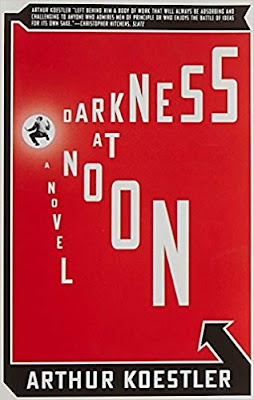 (288 pages)
(288 pages)Book club selection (via Chris; session held 22 October 2019).
I very much like this book; had read it several years ago, my summary is at this link.
Here are book club notes from the current reading -
so what to make of this?
photos disappear
today's progressives are similar to this? taking down statues, removing books, banning speakers, speech codes, cancel culture, prescribed behaviors - ? French Revolution - the left so often seems to end up so aggressive. maybe because the right tends to start from a position of authority so seems less so (because can filter aggression through police/authorities)?
ends justify the means. lying in service of getting elected, holding and keeping power. Trump a caricature. E Warren - opioids, health care caused bankruptcies, tax not being progressive, etc - obviously materially false - this is ok? let alone native american fantasy, getting fired for being pregnant - ? endless other examples from each party, these two just in current news cycle
politics as ultimately a power exercise - so true - here in US we are so sheltered - borders redrawn in Europe definitely through 1945, and in many places to this day. Stalin's foreign policy reached as far as his army.
so all the blather about political theory - is it irrelevant?
how to connect these 1930s episodes to today?
why do some humans want to dictate how other humans behave? why do so many humans look for a savior/parental figure?
Israelites in the desert imagery - there is no promised land - and this is ok
the excitement around the early days of socialism/communism is quite understandable. that anyone can continue it is inexplicable
Russia's so-rapid industrialization; Gletkin with some plausible observations

